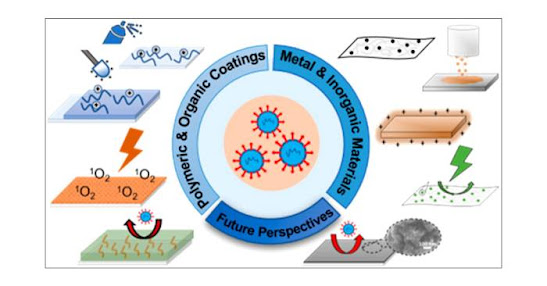Gastrointestinal bacterial infections are prevalent worldwide and can lead to a wide range of diseases, ranging from mild gastroenteritis to life-threatening conditions. Bacteria, such as Escherichia coli, Salmonella, Campylobacter, and Helicobacter pylori, are common pathogens responsible for gastroenteritis, food poisoning, and peptic ulcers. The eradication of these bacteria is essential to prevent further complications and promote public health. In this article, we will explore various mechanisms and strategies that lead to the killing of gastro bacteria.
Immune Response:
One of the primary defenses against gastrointestinal
bacteria is the host's immune system. Innate immunity, involving physical
barriers, such as mucus, saliva, and stomach acid, helps prevent bacterial
colonization. However, when bacteria manage to breach these barriers, the
adaptive immune system kicks in.
The adaptive immune system relies on specialized immune
cells, such as T and B lymphocytes, which can recognize specific bacterial
antigens. Antibodies produced by B cells help neutralize and mark bacteria for
destruction, while T cells directly attack and kill infected cells. The immune
response plays a crucial role in resolving mild infections and preventing
recurrent infections.
Antibiotics:
Antibiotics are a class of antimicrobial agents specifically
intended to kill or inhibit the growth of bacteria. They have been a
cornerstone in treating bacterial infections for decades. Different classes of
antibiotics target various aspects of bacterial physiology:
a. Cell Wall Synthesis Inhibitors: Penicillins,
cephalosporins, and vancomycin target the bacterial cell wall, weakening it and
leading to cell lysis.
b. Protein Synthesis Inhibitors: Aminoglycosides,
macrolides, and tetracyclines interfere with bacterial ribosomes, inhibiting
protein synthesis and eventually causing bacterial death.
c. DNA/RNA Synthesis Inhibitors: Fluoroquinolones and
rifampicin block bacterial DNA/RNA synthesis, disrupting vital cellular
processes.
d. Metabolic Pathway Inhibitors: Trimethoprim and
sulfonamides interfere with bacterial metabolic pathways, leading to depletion
of essential metabolites and eventual bacterial death.
However, the misuse and overuse of antibiotics have
contributed to the emergence of antibiotic-resistant bacteria, posing a
significant challenge to effective treatment.
Phage Therapy:
Bacteriophages, or bacteriophages, are viruses that infect
and kill specific bacteria. They are highly specific to certain bacterial
strains and do not harm human cells, making them a potential alternative to
antibiotics. Phage therapy involves the isolation and purification of phages
that target the infecting bacteria and their administration to the patient.
Phages replicate inside the bacterial cells, leading to
their lysis and release of new phage particles. While phage therapy shows
promise, more research is needed to establish its safety and efficacy as a
mainstream treatment for gastrointestinal infections.
Probiotics:
Probiotics are live germs that, when ran in adequate
amounts, confer health benefits to the host. Certain strains of probiotics,
such as Lactobacillus and Bifidobacterium, can compete with pathogenic bacteria
for nutrients and adhesion sites in the gastrointestinal tract. This
competitive exclusion prevents the proliferation of harmful bacteria and can
aid in restoring gut health.
Probiotics can also stimulate the immune system and produce
antimicrobial substances, such as bacteriocins, that directly kill or inhibit
the growth of gastro bacteria. Moreover, some probiotics exhibit antagonistic
effects by reducing the pH in the gut, creating an unfavorable environment for
bacterial pathogens.
Antimicrobial Peptides:
Antimicrobial peptides (AMPs) are small bits produced by
various organisms, including humans, as a part of their innate immune response.
These peptides have broad-spectrum antimicrobial activity and can kill bacteria
by disrupting their cell membranes, interfering with essential cellular
processes, or targeting specific intracellular structures.
Some AMPs are particularly effective against gastro
bacteria, making them attractive candidates for the development of new
antimicrobial agents. Additionally, bacteria are less likely to develop
resistance to AMPs compared to traditional antibiotics, providing a potential
solution to the antibiotic resistance crisis.
What is Microorganisms
Microorganisms, often referred to as microbes, are microscopic
living organisms that exist in various environments, including soil, water,
air, and living organisms. They come in different forms, such as bacteria,
viruses, fungi, and protozoa. Despite their small size, microorganisms play
crucial roles in ecosystems and human life. Some are beneficial, such as those
involved in nutrient cycling, food production, and medicine production (e.g.,
probiotics). However, certain microorganisms can also be harmful and cause
diseases in plants, animals, and humans. Understanding microorganisms' biology
and interactions is essential for various fields, including medicine,
agriculture, and environmental science.
Conclusion
The eradication of gastro bacteria is a complex process that
involves the interplay of various mechanisms. The immune response provides the
first line of defense, preventing bacterial colonization and resolving mild
infections. Antibiotics, despite their challenges, remain indispensable in
treating severe infections. Phage therapy, probiotics, and antimicrobial
peptides present promising alternatives and adjunct therapies to combat
gastrointestinal bacterial infections.
As we continue to face challenges such as antibiotic
resistance, the exploration of novel strategies to kill gastro bacteria will be
critical in ensuring effective treatment and safeguarding public health.
Researchers and healthcare professionals must work together to develop and
implement evidence-based approaches to combat these infections and reduce their
burden on society.

No comments:
Post a Comment
Note: only a member of this blog may post a comment.